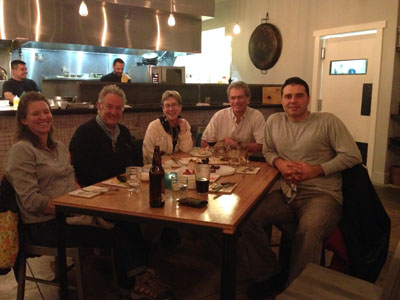Today's Department of Biology Seminar
Thursday, February 20th
4:00 - 5:00 pm
210 Aline Skaggs Biology Building
Stuart Pimm, Duke University
"Extinctions: When, Where, How Fast, and What We Can Do to Stop Them"
Description: Two massive changes to the global environment connect. About 15% of carbon emissions come from burning mostly tropical forests. Tropical deforestation is the major driver of species extinction, now running about 1000 times the natural, background rate. Understanding extinction requires a knowledge of the “laws of biodiversity” — the general patterns that describe how species are distributed. Understanding these laws allows the development of global conservation strategies. Implementing effecting conservation, however, requires that we downscale to the local scales where conservation is practical. Examples of that from coastal Brazil and the western Andes of Colombia show that by connecting, protecting and restoring fragmented landscapes can effect highly cost effective conservation. Funding from such projects that both save species and sequester carbon comes from those who wish to become carbon neutral.
About Dr. Pimm: Stuart Pimm is the Doris Duke Chair of Conservation Ecology at the Nicholas School of the Environment at Duke University. He studies present day extinctions and what can be done to prevent them. Pimm received his BSc degree from Oxford University in 1971 and his Ph.D from New Mexico State University in 1974. Pimm wrote the acclaimed assessment of the human impact to the planet: The World According to Pimm: a Scientist Audits the Earth in 2001. His commitment to the interface between science and policy has led to his testimony to both House and Senate Committees on the re-authorisation of the Endangered Species Act. Pimm directs SavingSpecies, a 501c3 non-profit that uses funds for carbon emissions offsets to fund local conservation groups to restore degraded lands in areas of exceptional tropical biodiversity. His international honours include the Tyler Prize for Environmental Achievement (2010), the Dr. A.H. Heineken Prize for Environmental Sciences from the Royal Netherlands Academy of Arts and Sciences (2006), the Society for Conservation Biology’s Edward T. LaRoe III Memorial Award (2006), and the William Proctor Prize for Scientific Achievement in 2007 from Sigma Xi, The Scientific Research Society.


